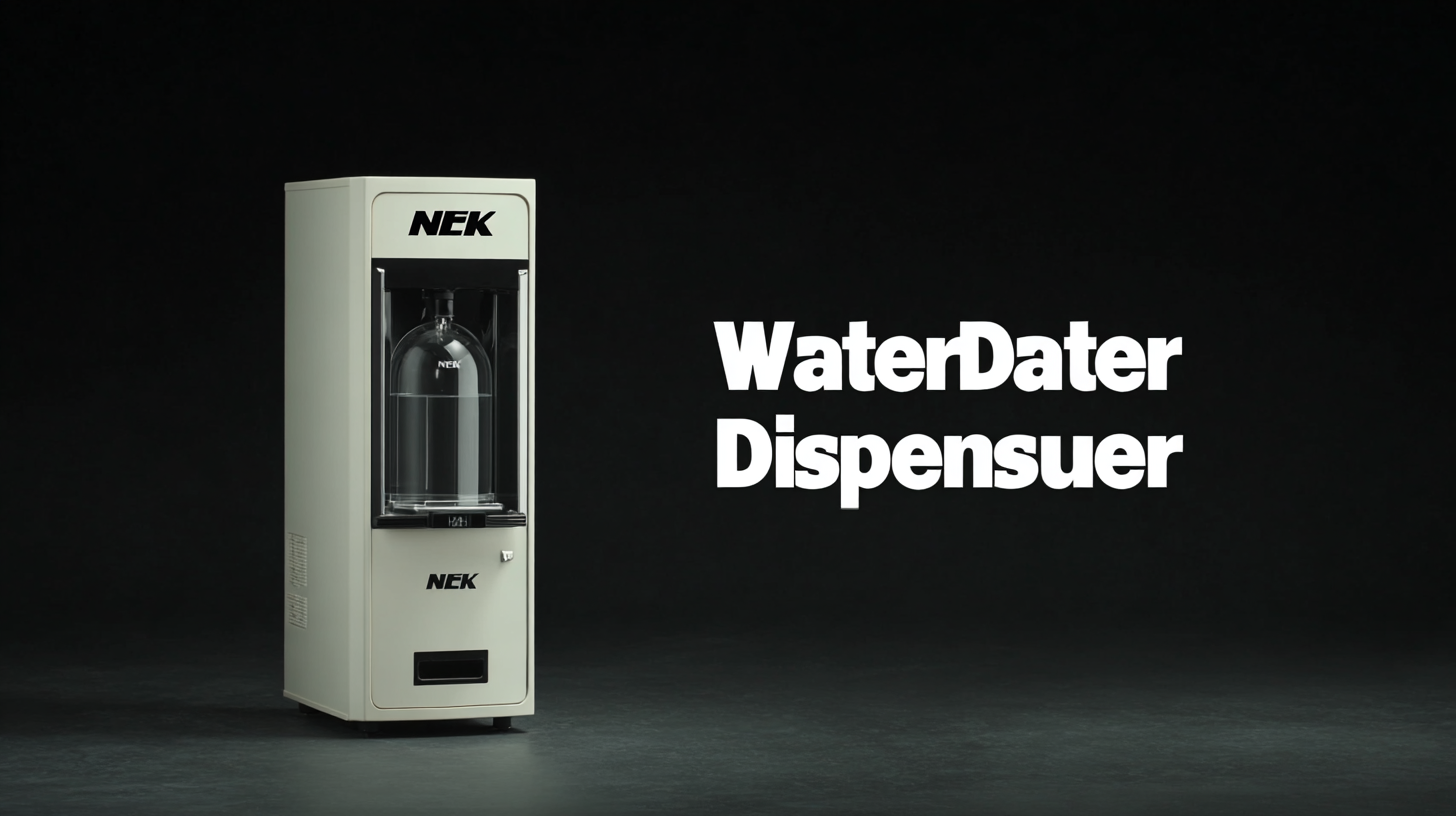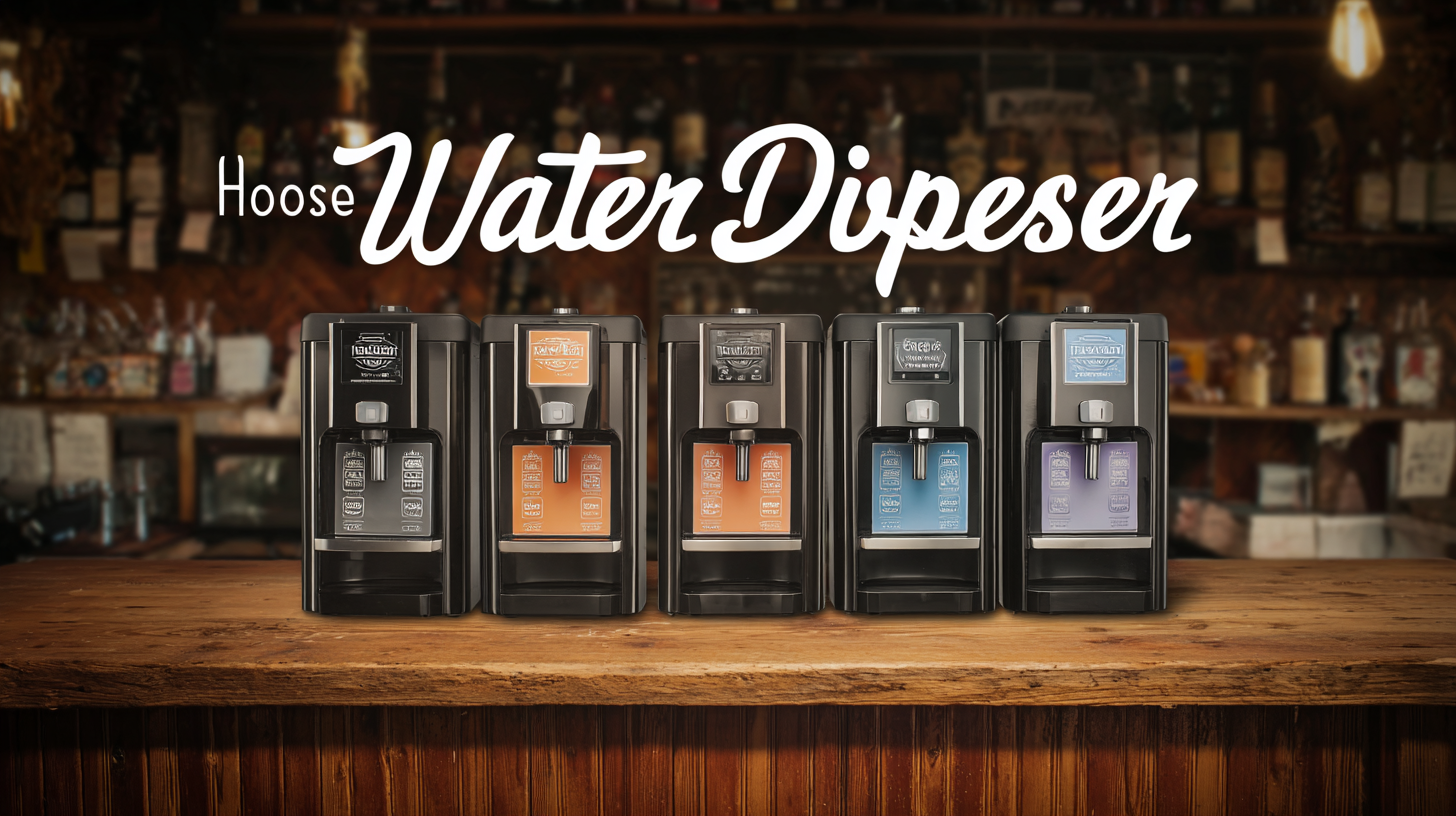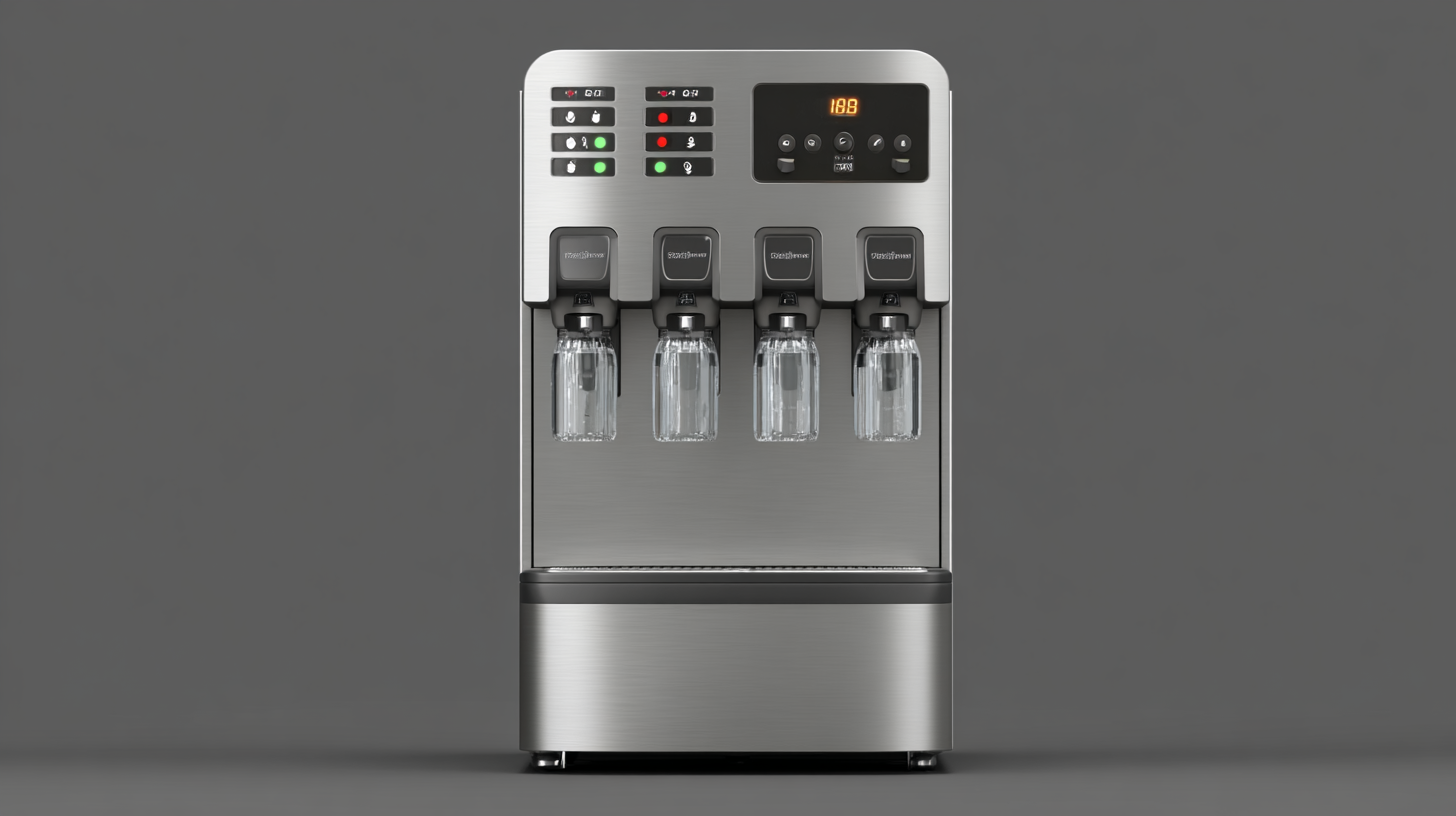
How to Choose the Best Water Dispenser for Your Business Needs
In today's fast-paced business environment, choosing the right water dispenser is crucial for ensuring hydration and comfort in workplaces, contributing to increased productivity and employee satisfaction. According to a recent report by IBISWorld, the global water dispenser market is projected to reach $12 billion by 2025, reflecting a growing demand for convenient and efficient hydration solutions in businesses of all sizes. With advancements in technology, modern water dispensers offer features such as filtration systems, energy efficiency, and touchless controls, making them not only convenient but also essential in promoting health and wellness in the workplace.

As companies continue to prioritize employee well-being, understanding how to select the best water dispenser tailored to their specific business needs becomes a fundamental aspect of office management and sustainability practices.
Understanding Your Business Water Needs and Usage Patterns
When selecting the best water dispenser for your business, understanding your company's water needs and usage patterns is crucial. Businesses vary significantly in their consumption habits due to factors such as the number of employees, the type of industry, and daily operations. For instance, a bustling office with a high volume of visitors may require a high-capacity dispenser, while a small boutique may find a compact model sufficient. Monitoring water consumption trends can provide valuable insights into optimal dispenser capacity and frequency of refills.

Furthermore, analyzing the spatial and temporal patterns of water distribution in your area can help tailor your water usage strategy. Research, such as that focusing on neighborhood inequalities or the impact of land use, indicates that water availability and quality can differ significantly across regions. This spatial variation should inform your choice of dispenser—especially if you are in an area prone to supply fluctuations. Utilizing smart water metering technologies can also assist in tracking usage patterns, ultimately guiding your choice towards a more sustainable and suitable water dispenser for your business needs.
Exploring Different Types of Water Dispensers: Pros and Cons
When selecting a water dispenser for your business, it's essential to understand the various types available and their respective advantages and disadvantages. One of the most common types is the bottleless water dispenser. These units are connected directly to your water supply, which eliminates the need for bulky bottles. The primary advantage of bottleless dispensers is their convenience—continuous access to water without the hassle of changing bottles. However, they require a plumbing installation and may not be suitable for all business environments.
On the other hand, bottled water dispensers are popular for their portability and ease of use. These dispensers can be easily moved and do not require permanent installation, making them versatile for different spaces. Additionally, they allow businesses to choose from a variety of water sources, including spring and purified water. Yet, bottled dispensers come with ongoing costs and the environmental concern of plastic waste. Evaluating these pros and cons can help you determine which type aligns best with your business's needs and sustainability goals.
Water Dispenser Types: Pros and Cons
Key Features to Look for in a Water Dispenser for Businesses
When choosing a water dispenser for your business needs, focusing on key features is essential to ensure your investment serves you well. First, consider the type of dispenser: bottled or point-of-use. Bottled water dispensers are convenient if you have limited plumbing access, while point-of-use models connect directly to your water supply, providing an endless source of drinking water.
Another crucial feature to evaluate is the cooling and heating capabilities. Look for dispensers with adjustable temperatures to cater to various beverage preferences. Additionally, energy efficiency is important; choose models that consume less energy, as this will help cut down on utility costs.
When assessing capacity, think about your office size and daily consumption. A larger tank may be necessary for bustling workplaces, while a smaller model might suffice for smaller teams. Don't forget to check for user-friendly designs, such as easy-to-use taps and simple maintenance requirements, which can save time and enhance employee satisfaction.
Evaluating Cost vs. Quality: Finding the Right Balance
When selecting a water dispenser for your business, it’s crucial to evaluate the often challenging balance between cost and quality. A lower-priced unit may initially seem attractive, but it may lack the durability and performance features needed for a high-demand environment. Cheaper dispensers can lead to frequent breakdowns, resulting in more significant long-term costs due to repairs and replacements. Understanding your business's specific needs—such as the volume of water consumption and the desired features (like hot and cold options)—can help in making an informed decision.

On the flip side, investing in a higher-quality water dispenser often translates to enhanced efficiency and longevity. Premium models frequently come with advanced filtration systems, energy-saving capabilities, and better build quality, all of which can improve employee satisfaction and customer experience. It’s important to calculate the total cost of ownership over time, considering maintenance and utility costs alongside the initial purchase price. By carefully weighing these factors, you can find a water dispenser that not only fits your budget but also meets the quality standards essential for your business’s success.
Future Trends in Water Dispensers and Sustainability Considerations
As businesses become increasingly aware of their environmental impact, sustainability considerations in water dispensers are gaining prominence. Modern water dispensers are designed with eco-friendly features that help reduce plastic waste and lower energy consumption. Many brands are now offering units that are compatible with refillable water bottles, encouraging a shift away from single-use plastic bottles. Additionally, some dispensers utilize advanced filtration systems that not only provide clean drinking water but also significantly minimize the reliance on bottled water, promoting a more sustainable operation.
Future trends in the water dispenser market also highlight the role of smart technology in enhancing sustainability. IoT-enabled dispensers can monitor water usage and provide users with insights into their consumption patterns, helping them make informed decisions about resource management. Moreover, innovations in energy-efficient designs and solar-powered options are emerging, allowing businesses to adopt greener solutions. By considering these future trends and sustainability factors, businesses can select water dispensers that align not only with their immediate hydration needs but also with their long-term environmental goals.
